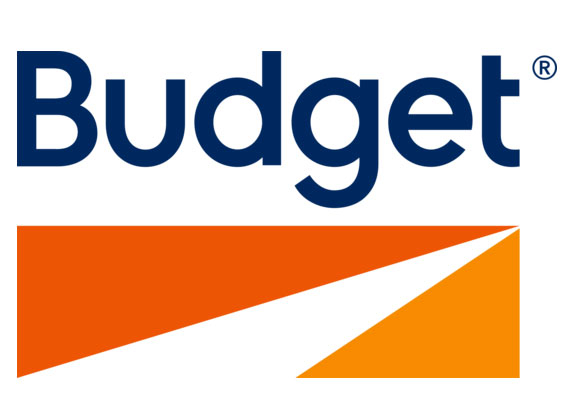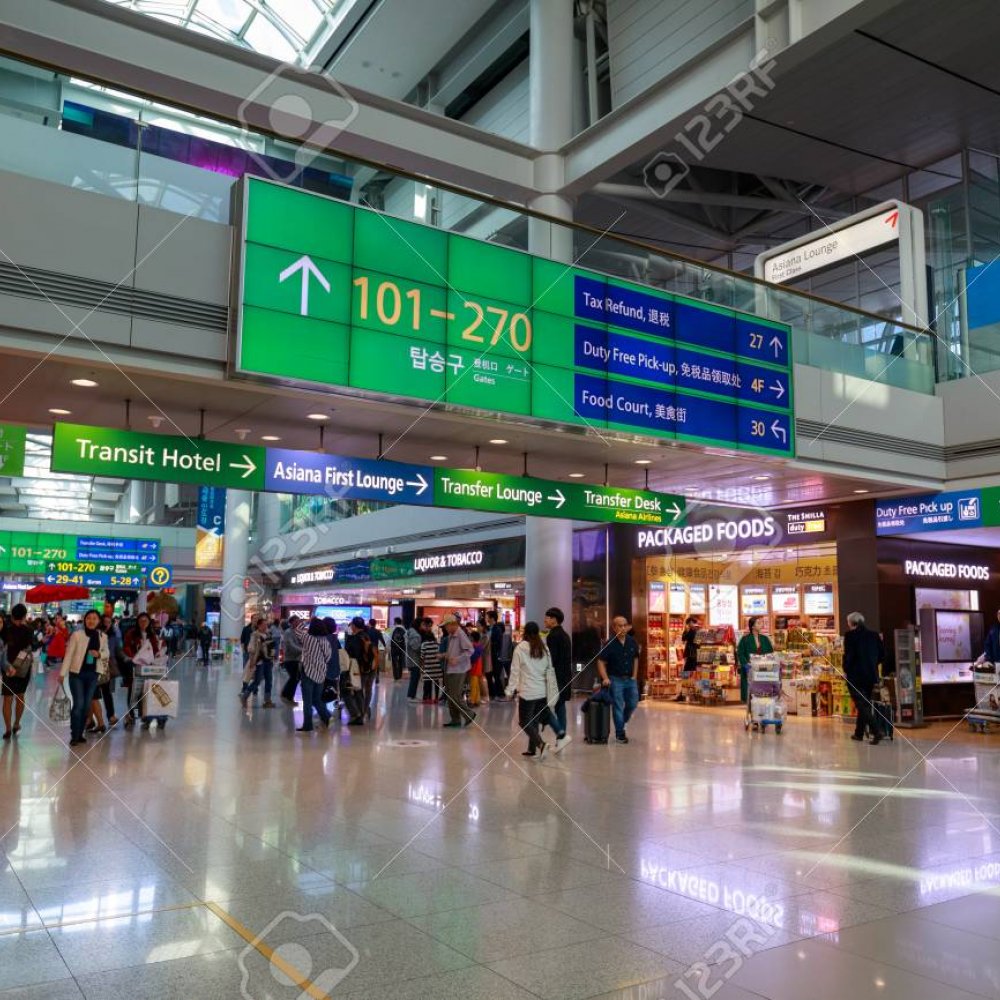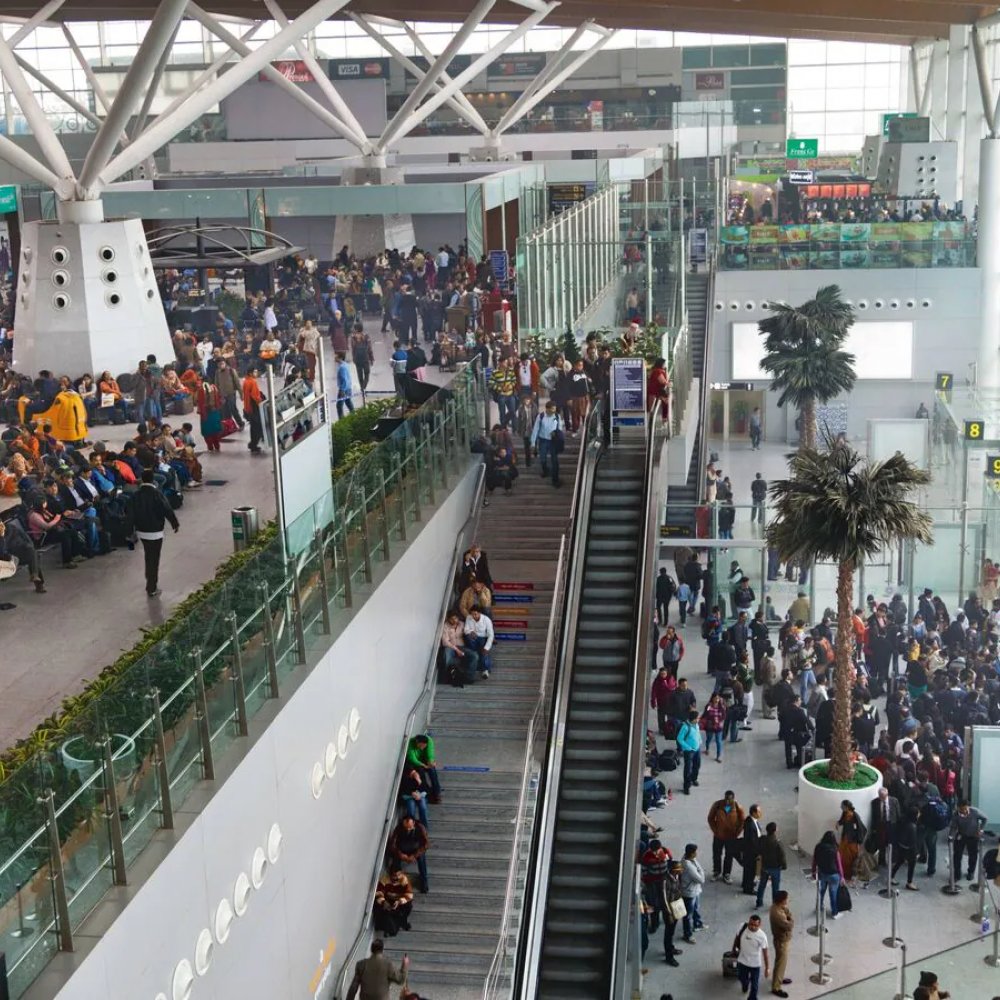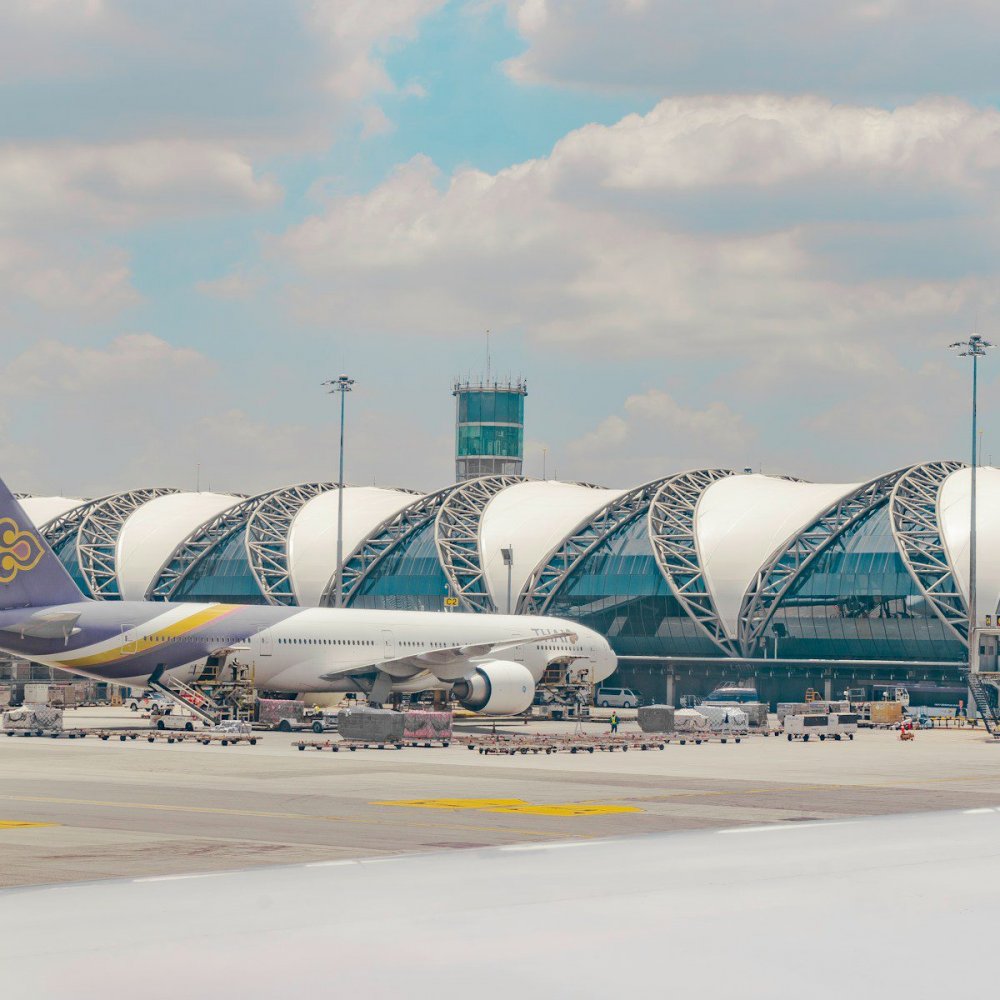Imagine waking up early in vibrant Seoul with a mixture of excitement and anticipation for your flight. The rhythm of the city pulses around you—street vendors preparing their fare, taxis weaving through busy streets, and the distant hum of trains rushing beneath the surface. You know your journey to Incheon Airport, KR, awaits, but with multiple transport options at your fingertips, deciding how to get there can feel overwhelming. Packing your bags, double-checking your documents, and timing your departure perfectly is crucial to avoid last-minute stress. Remember the last time you caught a taxi that got stuck in traffic, causing a nerve-wracking race to the gate? This time you want it right—the quickest, most affordable, and most comfortable option. That’s precisely where this guide steps in. Whether you prefer the convenience of a taxi, the reliability of the Incheon Airport, KR train, or want to save with express or local buses, this article breaks down how to get to Incheon Airport, KR with clarity and confidence. Ready to bypass the usual confusion and start your journey smoothly? Let’s dive in.

Why Plan Your Airport Transfer?
Planning your transfer to Incheon Airport, KR is more than a mere box to tick. It’s about ensuring your journey begins calmly and punctually, setting the tone for the entire trip. The metropolitan sprawl of Seoul and surrounding areas can throw up unexpected traffic snarls, especially during peak hours or adverse weather. Without a plan, you risk costly delays, missed flights, or overpaying. Whether you’re catching a domestic connection or a long-haul international flight, knowing your transport options and their timings allows you to select one that matches your priorities—be it speed, comfort, budget, or accessibility.
My own experience, navigating Seoul’s intricate transport web, taught me that while taxis provide door-to-door convenience, they aren’t always fastest during rush hour. Likewise, rail options like the Incheon Airport, KR train can avoid jams but require a short transfer walk. And if you’re mindful of your carbon footprint, public buses or shared shuttles might be your best bet. Planning ahead means you avoid the anxiety of last-minute scrambles, and you gain control over your journey. Factor in luggage space, night surcharges, and payment methods—these details play a surprisingly big part in your overall experience. Ultimately, a well-planned transfer can transform your airport commute from a source of stress into the harmonious start of your adventure.
Price & Time Grid: Your Options at a Glance
| Mode | Single Fare (₩) | Return Fare (₩) | Journey Time (mins) | First / Last Service | Night Surcharge |
|---|---|---|---|---|---|
| Taxi | 40,000–55,000 | N/A | 50–70 | 24/7 | Yes (20% after 12am) |
| Rideshare (Kakao, Tada) | 35,000–50,000 | N/A | 50–70 | 24/7 | Surge pricing variable |
| Incheon Airport, KR Train (AREX) | 4,500 (Express), 4,150 (All Stop) | 7,000 (Express) | Express: 43, All Stop: 56 | 5:30 / 23:48 | No |
| Express Bus | 10,000–15,000 | 18,000–27,000 | 60–90 | 5:00 / 23:30 | No |
| Local Bus | 3,000–6,000 | N/A | 80–120 | 5:00 / 22:30 | No |
As you can see, your options to get to Incheon Airport, KR span a broad spectrum of price and time. The taxi to Incheon Airport, KR offers ultimate convenience but comes at a premium, particularly with night surcharges. Rideshares like Kakao and Tada are slightly less expensive but can be subject to surge pricing during rush hours. The Incheon Airport, KR train (AREX) is the fastest fixed-price option, especially if you catch the express service. Express buses provide a balanced choice between cost and duration, while local buses give the most affordable but slower journey. Choose according to your schedule, budget, and luggage needs.
Step-by-Step Guide for Each Mode
Taxi
- Step outside your hotel or home and hail a taxi or book via a taxi app like Kakao T.
- Confirm your destination as "Incheon International Airport" to the driver.
- Allow 50–70 minutes during the day; expect possible delays during peak hours.
- Pay by cash or card—note night surcharge applies after midnight.
- Collect your luggage with assistance if needed; taxis accommodate large suitcases.
- Arrive directly at your terminal entrance, ready for check-in.
Rideshare
- Open your preferred rideshare app (Kakao T, Tada) and input Incheon Airport, KR as your destination.
- Choose your ride type (standard, premium, or share) based on budget and comfort.
- Confirm the driver details and estimated fare before booking.
- Meet your driver at the designated pickup point, typically outside your accommodation.
- Monitor the route via the app; trip duration mirrors taxi times but watch for surge pricing.
- Pay seamlessly through the app or cash if preferred, then unload your luggage at the terminal.
Rail
- Locate the nearest Incheon Airport, KR train (AREX) station—central Seoul stations like Seoul Station, Hongdae, or Gimpo Airport are common starting points.
- Purchase your ticket; express service costs around ₩4,500 single and saves considerable time.
- Board the train and listen for station announcements—express skips intermediate stops, while all-stop trains call at seven stations.
- Upon arrival at Incheon Airport Terminal 1 or 2, follow the signage to the check-in area.
- Consider luggage lockers or trolley rentals if carrying heavy bags.
Bus
- Head to major bus stops servicing express or local buses—check with your hotel concierge or online for the nearest route.
- Buy tickets at the bus terminal or pay the driver directly; note some local buses may require cash only.
- Board the correct bus to Incheon Airport, KR; express buses offer fewer stops and faster service.
- Enjoy a comfortable ride, expect journey times from 60 to 120 minutes depending on route and traffic.
- Disembark at designated airport bus stops near your departure terminal.
- Load your luggage with care as bus storage options can be limited.
Returning a Rental Car
- Refuel your rental car to the level agreed upon in your rental contract; nearby petrol stations around Incheon Airport, KR are open 24/7.
- Follow clearly marked signs directing you to the rental car return area within the airport complex.
- Park in your rental company’s designated zone and collect all belongings before exiting.
- Complete any required paperwork at the rental desk; some locations offer express drop-off options.
- If after-hours, use the secure drop-box provided by your rental company for keys and documents.
- Access the shuttle service frequently running from the rental car area to the departures terminal.
- Arrive at your departure terminal with ample time to navigate the airport's security procedures.
Money-Saving Hacks
- Purchase AREX express train tickets online in advance for discounts and skip queues.
- Use T-money or cashbee transit cards for bus and subway rides to shave a few hundred won off fares.
- Share rides with friends or family using rideshare apps to split surge pricing during peak hours.
- Book express bus tickets bundled with flight tickets through some travel agencies for a cheaper package.
- Avoid taxis between midnight and 5 a.m. to bypass hefty night-time surcharges.
Peak-Hour vs Off-Peak Travel Times
Peak hours in Seoul and surrounding areas usually extend from 7 a.m. to 9:30 a.m., then again from 5 p.m. to 8 p.m. During these times, taxis and buses to Incheon Airport, KR can get caught in heavy traffic, potentially doubling your journey time. Rail remains relatively unaffected, making the Incheon Airport, KR train the best choice for punctuality during rush hour. If you plan travel during peak times, allocate extra buffer time to reach the airport.

Conversely, off-peak hours, typically mid-morning to mid-afternoon, offer more predictable travel times. Taxis and buses move more freely, and rideshare services are less likely to surge in fare. For budget-conscious travellers not bound by strict schedules, this is the ideal window to journey to Incheon Airport, KR comfortably and economically.
Accessibility & Luggage Factors
For travellers with mobility needs, Incheon Airport, KR is well-equipped with elevators, ramps, and wheelchair-accessible facilities across terminals and transport nodes. Taxis and rideshare vehicles vary in accessibility, so it’s best to request vehicles compatible with your requirements in advance. The Incheon Airport, KR train stations offer barrier-free access, but transferring between lines may involve walking or escalators. If you’re travelling heavy or bulky luggage, taxis and rideshares offer the easiest door-to-door service but may incur higher costs when loading/unloading assistance is needed.
Express and local buses have limited luggage space, often shared in overhead compartments or under the bus, so bulky items might be challenging. Plan accordingly by packing with manageable suitcases or using luggage delivery services available in Seoul, especially if transferring via public transport.
Carbon-Smart Alternatives
If reducing your environmental impact matters, consider shared shuttle vans connecting popular hotels with Incheon Airport, KR. These provide the social benefits of group travel and cost-sharing advantages while emitting less CO2 per passenger than individual taxis. The bike-and-ride concept is gaining traction in Seoul; you can cycle to nearby train stations that serve Incheon Airport, KR, combining green exercise with fast train transfers.
Park-and-ride is another savvy choice. Park your car at a peripheral transit hub and take express buses or trains to the airport, cutting motorway emissions and avoiding expensive airport parking fees. Local environmental initiatives often support these options through discounts or incentives.
Sample 08:00 Flight Timeline
- T-12 hours: Double-check your flight status and pack your bags carefully.
- T-4 hours: Decide how to get to Incheon Airport, KR and book your transport.
- T-2 hours: Leave accommodation, accounting for transit time and potential delays.
- T-0: Arrive at Incheon Airport, KR and head for check-in and security clearance.
Hidden Pitfalls & Local Quirks
Understanding local quirks can save you from unexpected headaches on your journey:
- Strike days: Public transport strikes can disrupt schedules abruptly—always check local news before travel.
- Cash-only buses: Some local buses servicing suburban areas near Incheon Airport, KR do not accept cards requiring cash payment.
- Motorway tolls: Taxis and rideshares take toll roads to reduce journey time, often adding a few thousand won to the fare.
Eight Mistakes Travellers Make
- Assuming taxi prices won’t surge during holidays or late nights.
- Ignoring luggage size restrictions on buses or trains.
- Not verifying night service hours for public transport.
- Failing to pre-book rideshares during busy travel seasons.
- Leaving rental car return until last minute without refuelling.
- Using local buses without carrying enough cash.
- Underestimating walking distances at train stations or bus stops.
- Overlooking peak hour traffic delays when choosing taxis or buses.
Frequently Asked Questions
Q: What is the fastest way to get to Incheon Airport, KR from Seoul city centre?
The fastest option is the AREX express train service from Seoul Station, taking about 43 minutes without any intermediate stops.
Q: Are taxis to Incheon Airport, KR reliable during late-night hours?
Yes, taxis run 24/7, but be prepared for night surcharges and potentially longer fares during midnight to 5 a.m.
Q: Can I use contactless payment on buses to Incheon Airport, KR?
Most express and local buses accept transit cards like T-money, but some local routes still operate on a cash-only basis. Always carry some cash as a backup.
Q: How early should I return a rental car at Incheon Airport, KR?
Return your rental car at least two hours before your flight, allowing time for refuelling, paperwork, and shuttle transfers to the terminal.
Call to Action
Now that you’ve got the lowdown on how to get to Incheon Airport, KR with ease and savvy, I’d love to hear about your experiences. Have you found a favourite route, or encountered challenges in your journey? Drop a comment below, share your tips, and subscribe to get more insider travel guides delivered straight to you. Safe travels and happy flights!






